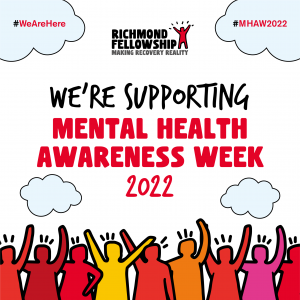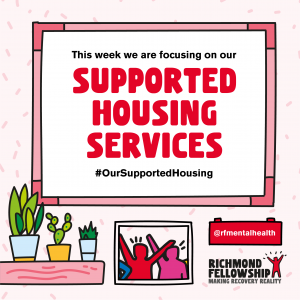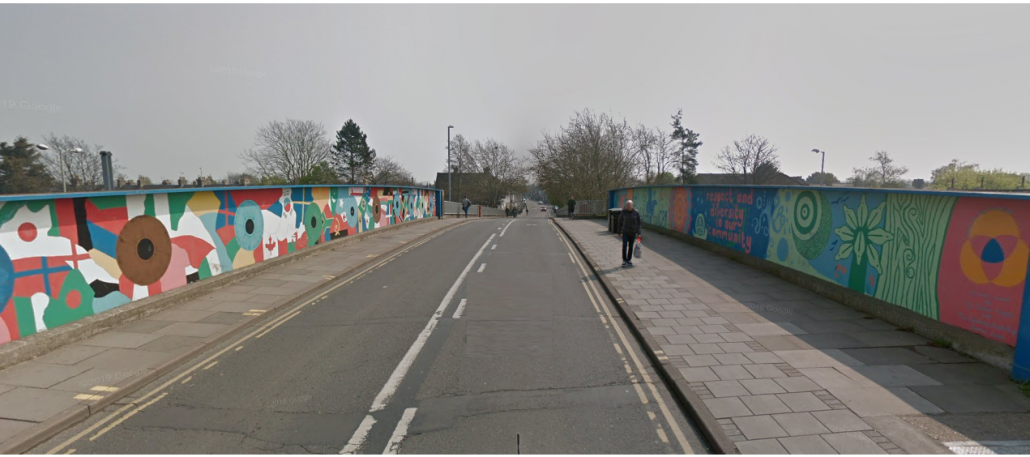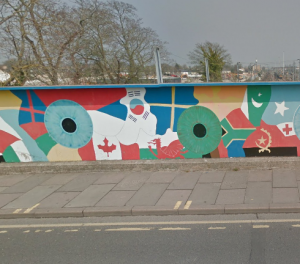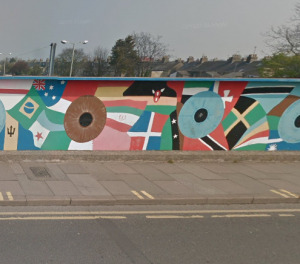Richmond Fellowship joins Durham Alliance Partnership
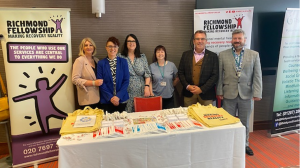
Robert Templeton, Richmond Fellowship Director of Operations (right) alongside Area Manager Karyn Ainsley and the team.
Richmond Fellowship is proud to be part of a new partnership that will support County Durham residents with all aspects of their mental health in one go.
The all-inclusive approach of the new Durham Mental Wellbeing Alliance, which brings together 13 individual organisations, will improve access to 21 separate services, helping people to get the help they need without having to write, telephone or attend each service individually.
The alliance has been commissioned by Durham County Council and includes Richmond Fellowship’s two existing Supported Housing services in County Durham and our Floating Support service in the area as well as partners Home Group, Creative Support, If U Care Share, Mental Health Matters, St Margaret’s Centre and Waddington Street.
The new service removes the need for people to approach a number of different organisations and instead means that people can call one telephone number, a single point of access, to have their needs assessed and automatically referred to the most appropriate teams.
People will no longer have to tell their story more than once to access a wide range of free mental health, wellbeing and recovery services, including those which help with relationships, bereavement and suicide. The service will also provide support with accommodation, education and employability, as well as physical activity, befriending, finances and more.
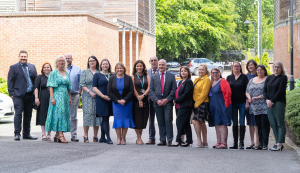
Mental Health Alliance at the Radisson, Durham. Photo by: Silverbird Photography Emily Carey (www.silverbirdphotography.com)
70-year-old Tom Raine, from Gilesgate, is a service user turned volunteer who helped to plan the launch of the new alliance. Former engineer Tom sought support from two of the services which are part of the Durham Mental Wellbeing Alliance, before progressing to become a volunteer with both members, Waddington Street Centre and Home Group.
After several years, a heart issue forced Tom to take some time out and, like many people, he found that living with a chronic illness had a negative impact on his mental health. He turned to Waddington Street Centre again for support and after a period of recovery, was keen to get more involved in helping others to receive the help he had found beneficial.
Tom, who has always been someone who thinks of others before himself, quickly became involved with the mental health, anti-stigma and discrimination charity, Stamp it Out, where he is now a very proud trustee.
He is also an active member of the County Wide Forum, a service-user-led group which acts to support and address the concerns of people living with mental health problems. Tom said:
“I enjoy giving back to the community and have been volunteering and supporting many community projects for years. I’m pleased that the new alliance recognises the importance of involving service users in the planning and delivery of its services and am looking forward to being involved in making it easier for people to access mental health support.
Approaching services for help is a big step for a lot of people who struggle with their mental health. Reducing the number of services that someone needs to contact to get support is a fantastic move towards helping people to live better lives, without fear of stigma or having to repeat information”.
Robert Templeton, Director of Operations at Richmond Fellowship, said:
“We’re thrilled to be part of the new Durham Alliance Partnership, bringing together the expertise of our Richmond Fellowship services in the area alongside other partners in the Alliance.
The new partnership will help create a more streamlined referral pathway for those accessing support in the local area, meaning we can deliver our services to as many individuals needing mental health support in Durham as possible”.
Councillor Paul Sexton, the council’s Cabinet member for Adults and Health Services, added:
“The alliance will have huge benefits for people experiencing issues with their mental health, providing a joined-up approach which will ensure they receive the most appropriate support to meet their needs.
The collaborative approach brings together the skills, knowledge and resources of a number of providers for the benefit of people in County Durham and will provide an improved streamlined service.”
For more information or to self-refer to the service, visit www.durhammentalwellbeingalliance.org, call 0300 304 5527 or to find out more about the services Richmond Fellowship offers in the area, click here.





